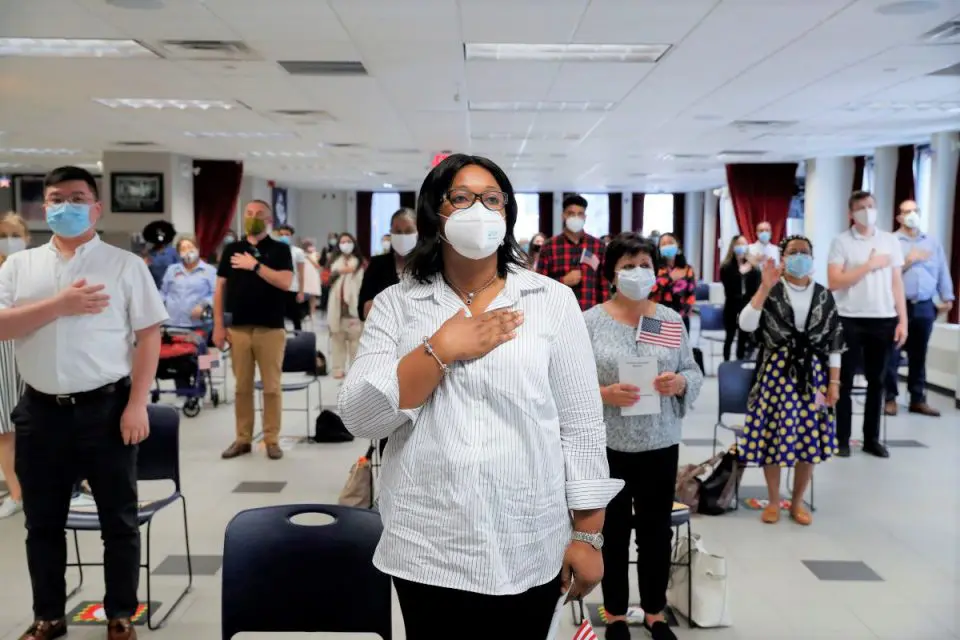By Beh Lih Yi and Nita Bhalla
KUALA LUMPUR/NAIROBI, NOV 11 — Joe Biden’s US presidential election win has raised hopes of resettlement for refugees from Asia to Africa, many in countries where they are denied work and education and have no formal status.
The United States has for years taken in tens of thousands of refugees who are unable to return home or make a new life in the country where they have sought asylum, under a process known as third-country resettlement.
But admissions plunged under President Donald Trump from 85,000 in 2016, before he took office, to 30,000 last year, official data shows. Biden has promised to lift the quota.
That has raised the hopes of millions languishing in camps or settlements around the world, among them Joseph, a refugee from one of Myanmar’s ethnic minorities who fled to Malaysia in 2007.
“I am hoping for a better future. I lost all my hopes for resettlement in the last four years,” said Joseph, who asked not to be identified in full.
“We can be arrested any time if we work. We have no legal protections, no future here,” he told the Thomson Reuters Foundation.
Like many countries in Asia and Africa, Malaysia, which hosts some 180,000 refugees, is not a signatory to the 1951 UN Refugee Convention.
That means people like Joseph can be viewed as illegal immigrants. Many turn to odd jobs to support themselves, putting them at risk of exploitation and abuse.
The United Nations refugee agency has said at least 1.4 million refugees like him are awaiting third-country resettlement next year, but countries have offered only a fraction of the places needed.
Cautiously optimistic
President-elect Biden is expected to try to reverse much of Trump’s immigration legacy including travel bans on 13 countries that are either majority-Muslim or African nations.
He has also said he would raise the annual ceiling for refugee admissions to 125,000, but has not indicated how quickly that would happen.
Danielle Grigsby, Refugee Council USA’s Director of Policy and Practice, said there were many reasons to be optimistic about more progressive refugee and immigration policies under the Biden-Harris government.
“There have been a lot of early signals from the Biden-Harris team to get rid of some of the totally unnecessary hurdles that have been put in place to intentionally slow refugees from coming to the U.S.,” said Grigsby.
“He has already said he would raise the refugee admissions ceiling. He’s also made it very clear that one of his policy priorities is to overturn the Muslim travel ban. We are very excited.”
But other campaigners warned his plan might face pushback from the Republicans, who appeared poised to retain control of the Senate.
“I am cautiously optimistic that we will see an expansion of refugee support across the region,” said Themba Lewis, secretary general of the Asia Pacific Refugee Rights Network, a Bangkok-based campaign group.
“We have to remember that the Barack Obama’s administration that Biden was a part of was… simultaneously welcoming to refugees but also hard on other immigrants,” he said. Three million immigrants were deported during Obama’s eight years in office.
Lewis said rising humanitarian conflicts have driven refugees to risk even more precarious journeys, while the long waits for resettlement had led to a surge of xenophobia in some host countries.
Dignified life
In Sub-Saharan Africa, home to more than one in four of the world’s 80 million refugees and displaced people, tens of thousands of people have had their applications for resettlement suspended since Trump took office in 2017.
In northern Kenya’s Kakuma camp – a sprawling settlement housing almost 200,000 people fleeing conflict and persecution in countries such as Somalia, South Sudan and the Democratic Republic of Congo – Biden’s win has brought a ray of hope.
Refugees who fled conflict and climate-related disasters such as droughts in Somalia have been among the most severely hit.
U.N. data shows 2,636 Somali refugees have so far been resettled in the United States under the present administration against the 32,068 Somali refugees accepted under the second term of former President Barack Obama.
“The last few years have been hard for us. The only hope we had was to get out of Kakuma and have a more dignified life where we are free and can work. Trump’s policy denied us that hope,” said Abdi, 35, who fled Somalia in 2009.
“People here have been very engaged in the election results. There have been a lot of conversations about Biden and people are very optimistic now. I don’t think he will be racist like Trump,” he said by phone.
Sharifah Shakirah, a Rohingya former refugee who moved to Texas after 21 years in Malaysia, said resettlement was the best solution for the nearly a million members of her ethnic group living in Bangladesh after fleeing persecution in Myanmar.
“One million Rohingya in Bangladesh have no livelihood, no security, no education,” she said. “They cannot live there for another 10 years. They need a solution and resettlement is one of the solutions.”
— Reuters





